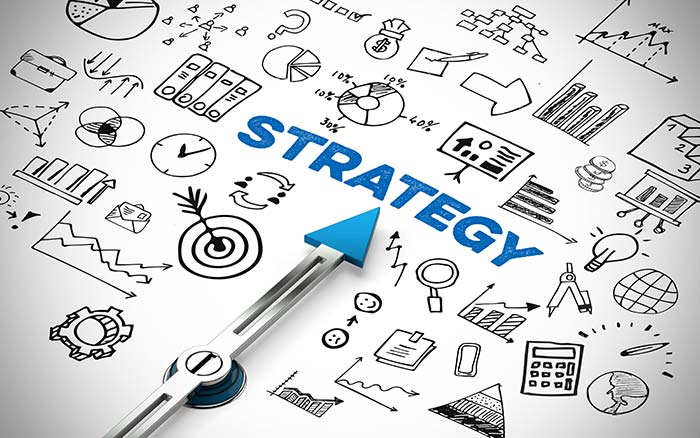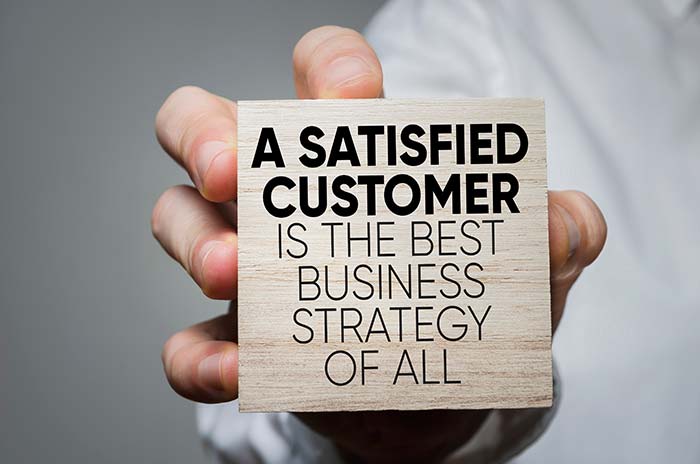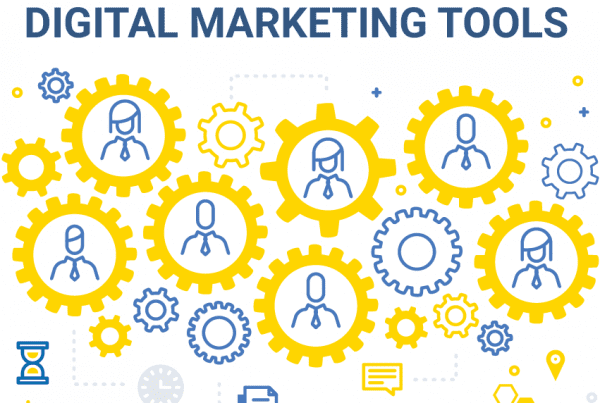Marketing Strategy Isn’t What You Think It is
Let’s clear something up right away. Marketing strategy isn’t advertising, branding, or promotion. Yes! Those things matter. You need tactics to implement your plan.
But you can’t start with tactics.
Right now, you are probably asking, “Why can’t we start with tactics?”
That’s a great question. Glad you asked.
Marketing Strategy goes deeper. It’s about clearly understanding who your ideal customer is, knowing what they need, and then aligning your business objectives to genuinely connect with them in meaningful ways.
A well-defined strategy ensures your marketing activities aren’t random but intentional, purposeful, and effective. It helps you communicate clearly, build trust, and drive consistent results that directly support your broader business goals.

What is Marketing Strategy?
Think about hosting a community picnic.
- Posting flyers around town is advertising.
- Handing out coupons at the local store is promotion.
- If someone accidentally dumps their pie on Miss SmallTown and the local news picks up the story, that’s publicity.
- Calming things down and inviting Miss SmallTown to speak is public relations.
- Selling tickets and refreshments? That’s sales.
- But carefully planning the entire event, knowing exactly who your audience is, and deciding what message to use to draw them in, now that’s marketing strategy.
Your strategy is how you connect the right message to the right people, making your efforts meaningful instead of random.
Why Your Marketing Efforts Might Be Failing
Most marketing efforts fail because folks don’t start with a clear plan. If you don’t have a defined strategy, you will often find yourself chasing after the latest marketing trends or fads, jumping quickly from one approach to another without giving any tactic sufficient time to demonstrate its value.
When you constantly shift tactics, the resulting scattered efforts dilute your overall message, confuse potential customers, and weakens your brand presence. Marketing without a coherent, focused strategy also consumes valuable resources, including time, money, and energy, often without measurable returns.
Truly effective marketing demands a disciplined approach—one that emphasizes consistency, patience, and commitment.
By developing and adhering to a clear, long-term strategy, you can create cohesive messaging, build stronger customer relationships, and ultimately achieve better and more reliable results.

Strategic Marketing vs. Tactics: Understanding the Difference
Marketing strategy is the big-picture plan for your business. It involves clearly defining where you’re headed and why. Think of it as deciding which city you want to visit, knowing why you’re going there, and mapping out the route you’ll take.
Strategic marketing focuses on long-term goals and positioning your business in a meaningful way that connects directly with customer needs and desires. It identifies the audience you want to attract, clarifies your unique value, and outlines how you’ll communicate effectively to build trust and loyalty.
Marketing tactics are the specific tools or activities you use to carry out your strategic plan. If your strategy is the roadmap, tactics are the actual steps you take along the journey, like deciding the specific highways you want to take, when to stop for fuel, and which restaurants you’ll visit along the way.
Tactics might include social media posts, email campaigns, SEO improvements, or digital ads. These tools only work effectively when they are guided by a well-defined strategy, ensuring every marketing effort contributes directly to your ultimate business goals.
The Essential Elements of an Effective Marketing Strategy
A solid marketing strategy has three foundational elements:
- Purpose – Clearly connect your business to the specific problem you solve for your customers. Your purpose explains why your business matters and how you uniquely address customer pain points.
- Audience – Deeply understand who you’re helping. Knowing your audience isn’t just demographic information—it’s about understanding their motivations, challenges, and desires. When you know exactly who your ideal customers are, your marketing becomes much more focused and effective.
- Message – Communicate effectively with your audience in a way that gets them to know, like, and trust you. Your messaging must resonate deeply with your audience, building the trust necessary for them to confidently buy from you.

Your Marketing Strategy Should Build Customer Relationships
Successful marketing guides your audience through essential stages of relationship-building. First, you need to spark curiosity. Clearly and quickly demonstrate how your product or service can improve their lives or solve their problems, immediately capturing their interest.
Once you’ve sparked curiosity, it’s crucial to educate or enlighten. At this stage, your goal is to explain precisely how your offering addresses their specific needs or solves their problem. Providing clarity removes doubts and confusion, paving the way for trust.
Finally, after establishing trust, it’s time for commitment. Confidently ask your customers to take action, whether it’s purchasing your product, subscribing to a service, or booking an appointment. By guiding your customers thoughtfully through curiosity, enlightenment, and commitment, you transform simple transactions into meaningful, lasting relationships.
How Marketing Strategy Helps Achieve Your Business Goals
When your strategy drives your marketing, every action becomes intentional. Imagine a business owner deciding on new office furniture. They’re not just buying chairs; they’re creating a comfortable, productive environment for their team. Your strategy should demonstrate clearly how your offering improves your customers’ lives. When customers clearly see that your goals align with theirs, reaching your business goals becomes far easier.

Your Next Step
Ready to create a marketing strategy that truly connects with your goals? Join our next Marketing Strategy Bootcamp. We’ll help simplify your planning and build a clear, actionable roadmap.
P.S. Want clarity on your marketing effectiveness? Use our free StoryBrand Marketing Report to quickly understand your strengths and opportunities.



